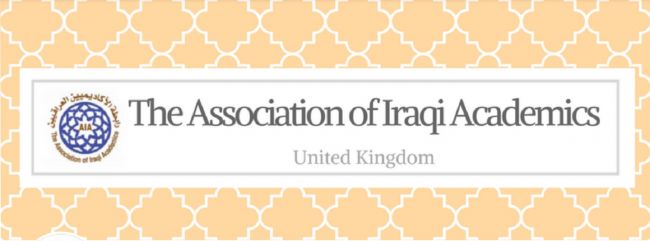Iraq: Academics’ freedom and trade union rights under attack
The Iraqi Parliamentary Education Committee has decided to abrogate the 2017 Law 60 that sets out the legal grounds for Iraqi academics to organise and run trade union activities.
On 8 February, AIA expressed grave concern about the decision, seeing it as “an attack on trade union rights” and condemning “this unjust and wrong decision”. The AIA has called for urgent solidarity with Iraqi academics and for Iraqi public authorities to reverse the decision.
Legal challenge rather than abolition
AIA has reiterated that it has not broken any law. And it has highlighted that a Federal Supreme Court case is the legal route for the Parliamentary Education Committee to challenge this particular law - instead of arbitrarily and undemocratically abolishing the academics’ union.
The Parliamentary Education Committee claims that Law 60 overlaps with other education laws used for organising the work and activities of other education unions. However, the AIA has said it is clear that there is no other education union, apart from the Iraqi Teachers Union (ITU), which is open to primary and secondary schools/colleges teachers. Because AIA’s membership targets university lecturers and academics, its aims and responsibilities are very different from those of the ITU.
Right to organise recognised
The education union also reiterates that open and democratic societies require workers to organise openly and freely from state interference, and that the Iraqi Constitution guarantees these rights, which are also internationally recognised.
It demands that Iraqi authorities respect and adhere to the country's Constitution. It also calls for the immediate reversal of the decision to abolish the union and for solidarity with the Iraqi academics.
Background
AIA, based in the United Kingdom is independent and gathers staunch advocates for human rights and democracy in Iraq. It was established to protect the interests of Iraqi academics abroad and in Iraq, after the national context forced academics to flee the country and support their peers who stayed in their homeland. It is supported by both Education International’s member organisations in Iraq, the ITU and the Kurdistan Teachers’ Union (KTU), as well as NASUWT-The Teachers’ Union, an Education International affiliate in the United Kingdom.
Sectarian divisions in higher education
Furthermore, Education International has been informed that sectarian combat is putting a lot of pressure on Iraq’s education system in general, with the higher education sector being particularly exposed.
In addition to direct violence against education institutions and targeted killings of students and academics, sectarian divisions impacted the higher education sector, putting pressure on students and university staff of opposing groups.
These groups interfered in many aspects of university life such as admissions, hiring, course content and physical security in campus.
Hundreds of academics were assassinated, and the Education Ministry recorded thousands of attacks against universities.

[Thu, 18 Feb 2021 16:22:00 +0000] | DIGG THIS
Phone: +32-2 224 06 11 · Email: eiaco@ei-ie.org
Website Development and Design by Cyblance
